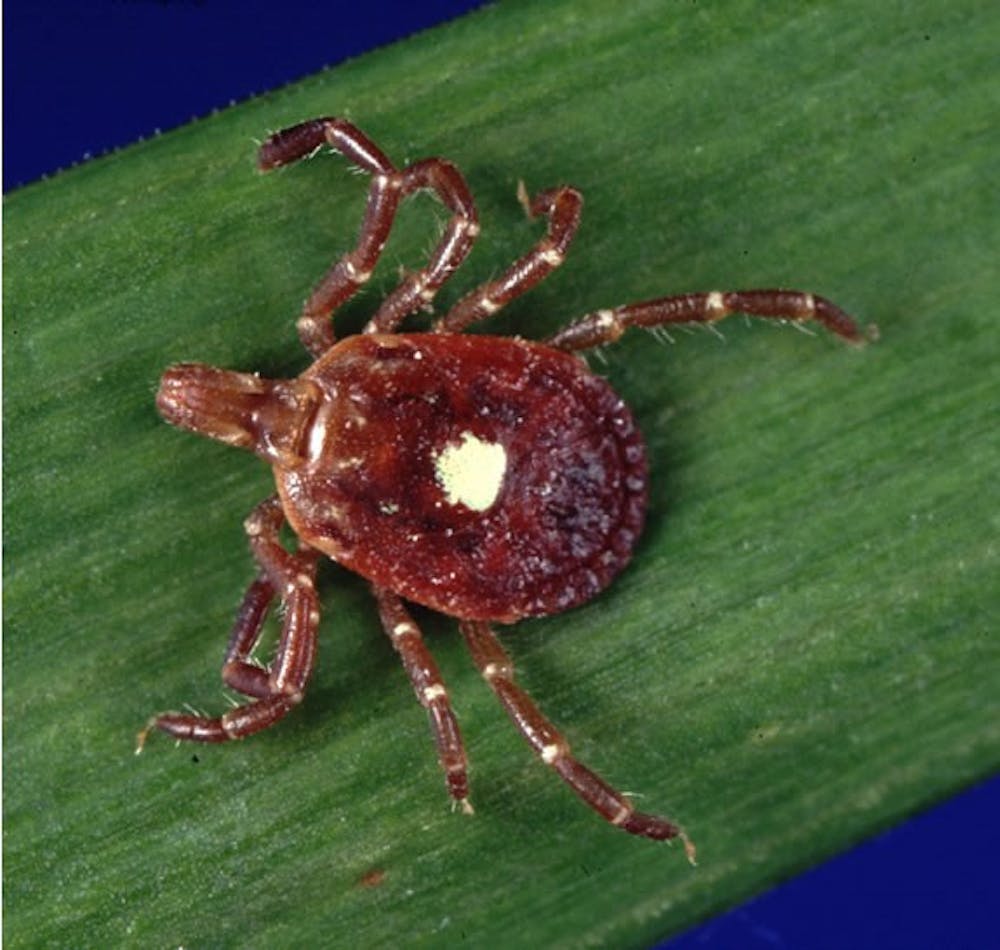In a preliminary study conducted in the University’s Medical School, researchers found that red meat sensitivity caused by a type of tick bite is associated with heart disease. Cardiovascular Medicine Prof. Coleen McNamara headed the study, working alongside other cardiologists and allergists to discover the initial correlation between red meat allergy and the increased risk of atherosclerosis, an increased buildup of plaque in the arteries.
In 2009, Medicine and Microbiology Prof. Thomas Platts-Mills, who is also the head of U.Va.’s Division of Allergy and Clinical Immunology, and Assoc. Medicine Prof. Scott Commins of the University of North Carolina at Chapel Hill, discovered the allergy to alpha-gal, or α-Gal — a sugar found in the saliva of the lone star tick — can be induced by a tick bite and results in a sensitivity to red meat. Platts-Mills’ and Commins’ research acted as a precedent to that of McNamara, setting a basis for finding other correlations.
The team of professors and researchers conducted their study on a population of 118 people between the ages of 30 to 80 years. At the time, the participants were undergoing medically-warranted cardiac catheterization — the insertion of a hollow tube into an artery leading to the heart. The study operated under the assumption that the subjects did not previously have any symptoms of allergic reactions to α-Gal.
Jeffrey Wilson, a research fellow in the University’s Division of Allergy and Clinical Immunology, said the allergy presumably develops in patients through bites from lone star ticks.
“It is possible there are other ways to develop the sensitivity, but at least in the southeastern US we think that bites from the lone star tick are the dominant explanation,” Wilson said in an email to The Cavalier Daily.
According to Wilson, a bite from a lone star tick can cause red meat sensitivity due the development of an allergy to the α-Gal carbohydrate found in the tick’s saliva. The bite, which releases α-Gal into a person, triggers a defense response from the immune system. The immunoglobulin E, or IgE, antibodies from the immune reaction remain in the body, likely leading to allergic reactions in bite victims when they eat red meat, which also contains α-Gal.
The prevalence of red meat sensitivity recently increased due to the proliferation of the lone star tick in new regions; it was previously found primarily in the southeast region of the United States but has spread westward and northward.
According to McNamara, despite preliminary data indicating a correlation between the red meat allergy and heart disease, the research team currently cannot fully confirm an exclusive association between the tick-borne allergy and heart disease. While a causal link is possible, there is currently not enough evidence to support making any changes to the recommendations given to patients with heart disease.
“We do not know what might have caused the association between the blood measure of the immune response to alpha gal and accumulation of plaque buildup and heart arteries,” McNamara said in an email to The Cavalier Daily. “Much more work needs to be done to determine if this immune response to alpha gal causes the blockage.”
Cardiovascular Medicine Prof. Christopher Kramer also underscored the importance of not assuming the existence of a concrete causal relationship between the allergy and heart disease. Instead, Kramer said patients’ bodies may contain the α-Gal antibodies released by their immune system due to past exposures, but not necessarily the allergy.
“So I think we have to be careful here because it’s not a cause and effect, it’s an association that was demonstrated,” Kramer said. “Now probably not all of those people had an allergy to the alpha-gal but they clearly had antibodies for it ... the burden of atherosclerosis was higher in the individuals who had the antibody.”
According to Kramer, inflammation is another factor that influences arterial buildup — which leads to atherosclerosis — in addition to general risk factors of cardiovascular diseases, including hypertension, cigarette smoking, diabetes, high cholesterol levels and family history of premature heart disease. Research studies have recently shown that anti-inflammatory agents, such as the drug Canakinumab, can reduce the occurrence of cardiovascular diseases.
Kramer found the study personally relevant since he developed the same red meat sensitivity from a tick bite. Kramer said he was allergic to red meat for six years and now no longer has the allergy, believing his α-Gal antibody levels to remain but likely have decreased over time.
The University’s initial research on the relationship between the red meat allergy and atherosclerosis will act as a prerequisite for further research on the underlying mechanisms of the allergy and its health implications.
In the future, McNamara’s research team hopes to analyze different geographic areas with broader cohorts of human subjects, while taking into account diet, allergy history and changes in specific antibody levels to further refine their understanding of the association between allergy to α-Gal and heart disease.





